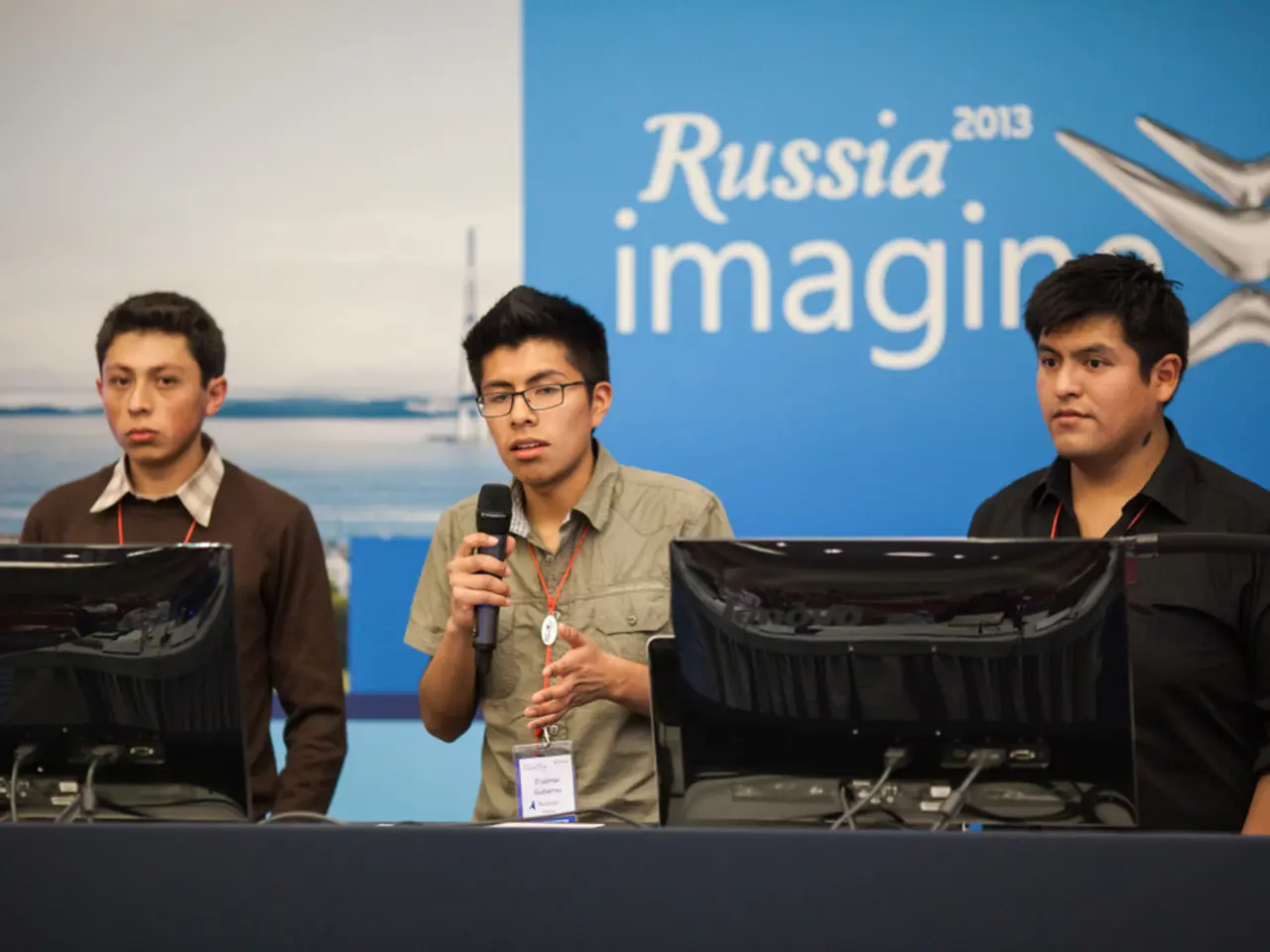U.S. Rumored to Impose Sanctions on Russian Secret Naval Force
The United States is reportedly considering expanding sanctions against Russia's "shadow fleet" as part of efforts to undermine Moscow's ability to evade oil embargoes and price caps, crucial for financing the war in Ukraine.
According to reports, the potential sanctions are a "simple first step to impose additional costs on Russia," aiming to cut Moscow off from Western markets and increase economic pressure. The sanctions are being considered in response to Russia's failure to agree to a ceasefire in Ukraine by Friday.
The shadow fleet, consisting of tankers often operating under false flags or opaque ownership, plays a major role in secretly exporting Russian oil mainly to China and India, bypassing international controls. These vessels, if targeted, would be a significant blow to Russia's oil revenues.
The fleet poses environmental and safety risks, as many tankers are old, poorly maintained, and have been involved in incidents. Countries like Norway have started inspections and control measures against these vessels.
If implemented, the sanctions would mark the first instance of Washington imposing sanctions on Moscow since former President Donald Trump's return to the White House. However, the ongoing discussions about the sanctions within the U.S. administration are not clear.
The U.S. administration may face serious geopolitical costs if it fails to meet its own tough demands on Russia regarding the settlement of the Ukrainian conflict. Previously, President Zelensky stated that he had spoken with Trump about peace and sanctions against Russia.
It is important to note that the report does not specify the nature of the geopolitical costs or the range of options, including sanctions against ships, being discussed in the U.S. administration. Additionally, the report does not indicate whether the U.S. administration has agreed to the tough demands on Russia nor does it mention the potential response of Russia to the U.S. administration's tough demands.
References:
[1] Financial Times, "US prepares to sanction Russian oil tankers," 10 August 2025. [2] Bloomberg, "Trump Threatens to Impose Sanctions on Russian Oil Tankers," 5 August 2025. [3] Reuters, "Russia's shadow fleet of tankers keeps oil flowing to Asia," 20 July 2025. [4] CNN, "Zelensky says he spoke with Trump about peace and sanctions," 3 August 2025. [5] Norway's Ministry of Foreign Affairs, "Inspections and control measures against Russian oil tankers," Press Release, 15 August 2025.
The potential sanctions on Russia's shadow fleet, a critical aspect of politics and policy-and-legislation, could escalate war-and-conflicts in Ukraine by cutting off Moscow's oil revenues, particularly for secret exports to China and India. General news outlets suggest these sanctions would be an extension of the ongoing efforts to impose additional costs on Russia, thus exerting economic pressure in response to Russia's failure to agree to a ceasefire.








